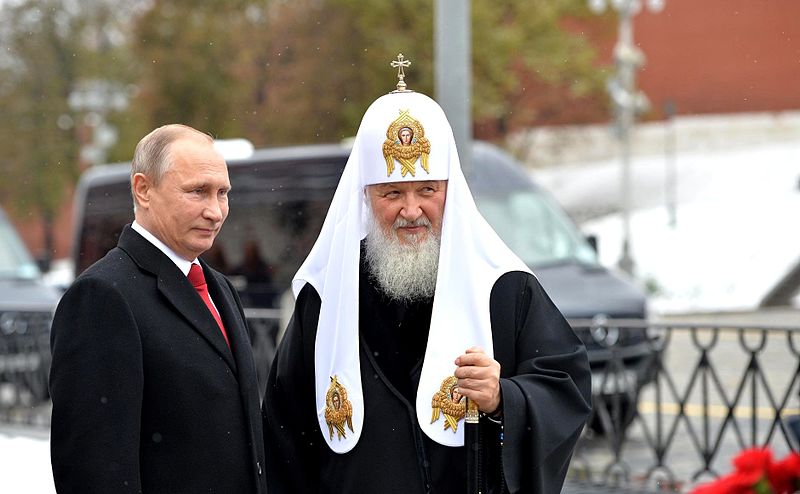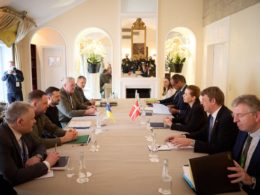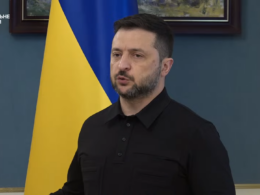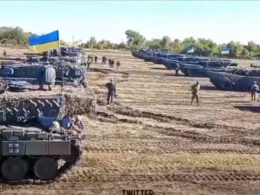In a groundbreaking critique, the National Council of Churches in Denmark has become the first European church body to publicly challenge the World Council of Churches' (WCC) contrasting responses to religious developments in Russia's war against Ukraine.
The Danish council's memorandum, dated 5 November 2024, raised six pointed questions about the WCC's approach, particularly questioning why the organization took only four days to condemn Ukraine's religious legislation requiring the Ukrainian Orthodox Church to sever ties with the Moscow Patriarchate while waiting two years to address Russia's characterization of the war against Ukraine as a "holy" endeavor.
The council directly asked "who benefits" from the WCC's statement that went against both the Ukrainian Council of Churches and Religious Organizations and the Ukrainian state.
"Why did the WCC act with such haste in this case? Why did the moderator and secretary general not involve experts or ask the Ukrainian government to clarify, as they did with patriarch Kirill's remark on the war being 'holy'?" the Danish council demanded in its memorandum.
The document also criticized the WCC's failure to consult the Conference of European Churches (CEC) despite having a memorandum of understanding requiring such consultation.
At issue is Ukraine's Law 8371, adopted on 20 August 2024, which prohibits religious organizations affiliated with Russia and defines the "Russian world" ideology as "a Russian neocolonial doctrine based on chauvinistic, Nazi, racist, xenophobic, religious ideas." The law specifically targets religious organizations affiliated with states recognized as aggressors against Ukraine. While not explicitly naming the Ukrainian Orthodox Church of the Moscow Patriarchate (UOC MP), the law requires religious organizations to prove they have severed ties with Russia within nine months or face potential deregistration through court proceedings.
The legislation's implementation requires complex procedures: Ukraine's State Agency for Ethnopolitics and Freedom of Religion will review each parish separately, as the UOC MP exists not as a single entity but as a network of about 8,000 affiliated religious organizations. Even if deregistered, congregations can continue religious activities but would lose privileges such as bank accounts, official salaries, property ownership, and reduced utility rates.
According to religious expert Tetiana Derkatch, while the law affects the Ukrainian Orthodox Church of the Moscow Patriarchate (UOC MP), it does not constitute an automatic ban. Rather, it establishes a legal framework requiring approximately 4,000 separate lawsuits for congregations under UOC MP jurisdiction. Independent expert Dr. Sebastian Rimestad describes the law as "mostly symbolic, with limited practical effect in its implementation."
The Danish council's criticism highlighted the WCC's characterization of the law as "collective punishment," noting that Ukrainian religious framework operates at the parish level, not as unified organizations. Ukrainian religious leaders themselves have defended the legislation, stating that "religious rights and freedoms are respected in Ukraine, even amidst the brutal war."
Background: Why Ukraine adopted the law
Ukraine's move to regulate religious organizations with ties to Russia comes after years of complex religious dynamics during the war. According to experts cited by Euromaidan Press, the law aims not to prohibit religious practice but to help the UOC MP resolve its ambiguous relationship with Moscow.
Since Russia's invasion, Ukrainian security services have documented cases of UOC MP clergy allegedly supporting Russian aggression. The Russian Orthodox Church's leader, Patriarch Kirill, has characterized the invasion as a "holy war" and blessed Russian military actions in Ukraine. Meanwhile, although the UOC MP declared administrative independence from Moscow in May 2022, an expert committee found the separation was incomplete, with the church maintaining canonical connections to the Russian Orthodox Church.
"The law can't ban pro-Russian sentiments in society, including inside the church. That's why we need to work with citizens, step up the education, counterpropaganda, information security," religious scholar Andriy Smyrnov told Euromaidan Press. He adds that the state's goal is to act as a mediator in religious matters while addressing national security concerns about Russian influence through religious institutions.
The legislation provides a nine-month window for religious organizations to clarify their status, with theologian Cyril Hovorun noting that some within the UOC MP actually welcome the law as leverage to push their leadership toward a complete break from Moscow.
Related:
- Is Ukraine banning the Ukrainian Orthodox Church?
- Pope, World Church Council criticize Ukraine law; theologian claims Moscow exploits situation





